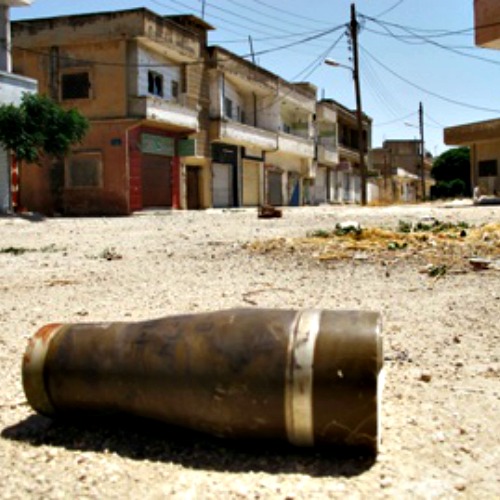Report: Syrian Rebel Group Tells Christians to Pay Up or Die
Islamist rebels have told Christians in Syria that they must pay protection money to live as second-class citizens or face ‘the sword.’

WASHINGTON — A jihadist group has allegedly given an ultimatum to Syrian Christians, demanding that they live as “dhimmis,” or low-status subjects, who must pay protection money and obey strict restrictions on their religious practice — or face death.
Christians who reject conversion to Islam or the restrictive conditions of dhimmitude “are subject to being legitimate targets, and nothing will remain between them and ISIS, other than the sword,” said the online statement reputedly from the Islamic state in Iraq and the Levant (ISIS), one of the Islamist rebel groups fighting against the government of President Bashar Al-Assad, according to the BBC.
The statement particularly concerns Christians in the northern Syrian city of Raqqa, which the rebel group currently controls. Raqqa was the first provincial capital to come under complete rebel control after the Syrian conflict began in March 2011.
The statement orders Christians to pay about half an ounce of pure gold in exchange for their safety, the BBC reported. Christians are barred from renovating churches and displaying crosses or other religious symbols outside of churches. They may not ring church bells or pray in public.
They are barred from carrying arms and must follow other rules created by ISIS.
The statement alleged that a group of 20 Christian leaders have accepted the demands.
Nina Shea, director of the Center for Religious Freedom at the Hudson Institute, a Washington-based think tank, said that the statement attributed to the jihadist group has not been independently verified, but is “consistent with the testimony of many Christians who have fled Syria.”
“Syria’s Muslims and Christians alike are intensely suffering from the conflict, with suffering inflicted by both the government and the opposition,” Shea said in an article at National Review Online. “The Christians who remain in Raqqa must now bear the additional suffering of dhimmitude.”
She said the rules will particularly affect churches and monasteries damaged during the Syrian conflict. They will also bar wedding and funeral processions. Christian women will need to wear shrouded clothing, and alcohol will be banned.
According to Shea, the rules purportedly date back to a seventh-century caliph. The protection money, known as the jizya, is to be paid twice annually for each adult Christian and varies based on one's wealth.
Raqqa had a population of about 300,000 people before the Syrian conflict began. Less than 1% were Christian. Many Christians fled after ISIS began to attack and burn churches.
In July 2013, an Italian Jesuit, Father Paolo Dall’Oglio, was abducted in Raqqa and reportedly executed by jihadists, Shea said.
State Department: ‘Outrageous Conditions’
The U.S. State Department on March 3 decried the Islamist rebel group’s announcement, stating the “outrageous conditions” placed upon Christians violate “universal human rights.”
It said the group “has demonstrated time and again its disregard for Syrian lives, and it continues to commit atrocities against the Syrian people.”
The group’s “oppression of and senseless violence against Syrians, including the moderate Syrian opposition, demonstrates that it is fighting for nothing except the imposition of its own brand of tyranny.”
The State Department said the U.S. “deplores the continued threats against Christians and other minorities in Syria.” The United States, which is backing other Syrian rebel groups against Bashar al-Assad, said that the Syrian government has “brutally cracked down on dissent from all segments of society.”
According to the State Department, the Assad government has allegedly arrested Christian worshippers, raided and confiscated church property, shelled Christian communities and bombed dozens of churches. Elements of the rebel groups have also bombed churches and committed their own atrocities in a conflict that has claimed 130,000 lives and displaced millions.
Many Christian leaders, including Melkite Greek Catholic Patriarch Gregorios III of Antioch, have warned about the extreme Islamist elements among some rebel forces. While the Christians are not siding with either the government or the rebels in the conflict, they’ve made clear that the brunt of the atrocities they’ve experienced come from the rebel groups, whose ranks are flush with foreign fighters that have become a mainstay of the military opposition to Assad.
One Christian leader who spoke with Time magazine said, “They are the ones killing and attacking churches and clergy and nuns and burning houses and eating human livers and hearts and cutting heads.”













